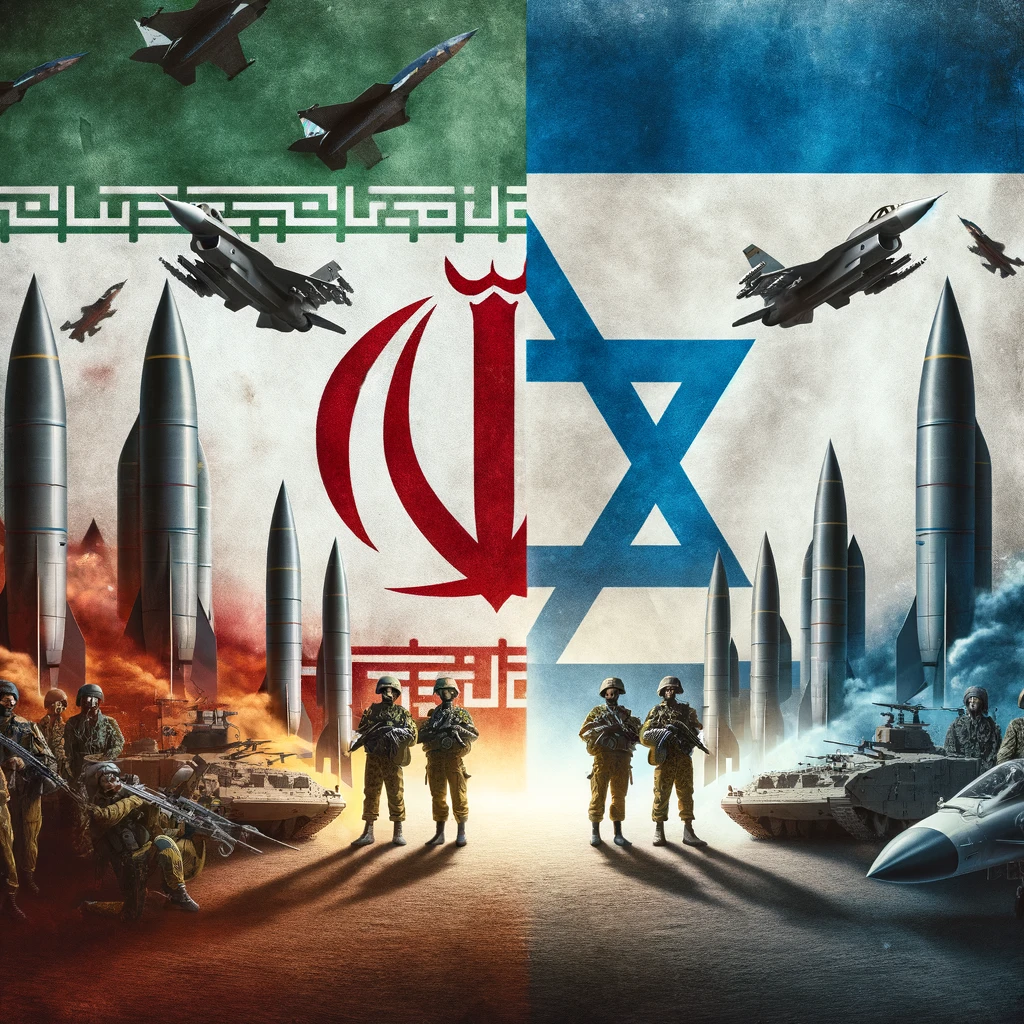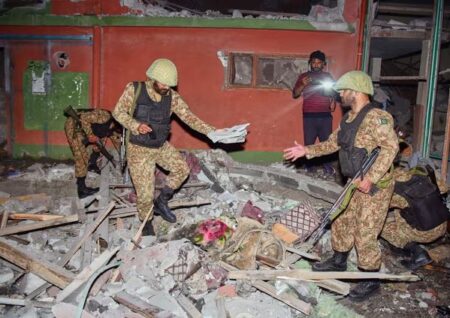The strategic balance of power in the Middle East heavily involves the military capabilities of Iran and Israel. Both nations have well-funded and technologically advanced military forces, developed under their unique strategic needs and geopolitical situations. This article delves into a comparison of the Military Strength of Iran and Israel across 20 different aspects.
Comparing the Military Strength of Iran and Israel
1. Defense Budgets
Israel spends a significant portion of its GDP on defense—around 5.6% as of recent figures. Iran, while secretive about its official defense spending, is estimated to invest less in percentage terms but considerable amounts in absolute numbers to maintain and enhance its military capabilities.
2. Active Personnel
Israel has a smaller population but maintains a robust active-duty military force of about 170,000 personnel, supplemented by a 465,000-strong reserve force. Iran’s active personnel is around 523,000 with several million in paramilitary and reserve roles.
3. Nuclear Capabilities
Israel is widely believed to possess nuclear weapons, estimated at around 80-90 warheads, although it maintains a policy of ambiguity and has not officially confirmed this. Iran has consistently stated its nuclear program is for peaceful purposes, though Western countries often express concerns about potential weaponization.
4. Air Force
The Israeli Air Force is renowned for its advanced technology, including F-35 stealth fighters and a range of other sophisticated combat aircraft like the F-15 and F-16. Iran’s air force primarily consists of older U.S.-made aircraft like the F-14, and Russian-made fighters like the MiG-29, supplemented by domestic upgrades and developments.
5. Army Equipment
Israel’s ground forces are equipped with modern tanks such as the Merkava IV, advanced artillery systems, and anti-missile defenses like the Iron Dome. Iran relies on a mix of older platforms such as Soviet T-72 tanks and domestically produced systems, which are less advanced than those of Israel.
6. Naval Capabilities
The Israeli Navy is small but highly effective, equipped with advanced submarines and missile boats. Iran’s navy controls larger vessels including frigates and submarines, focusing on securing their interests in the Persian Gulf and Strait of Hormuz.
7. Missile Systems
Both countries have significant missile capabilities. Israel has a multi-layered missile defense system including the Iron Dome, David’s Sling, and Arrow systems. Iran has developed a sizable ballistic missile arsenal capable of reaching many parts of the Middle East, including Israel.
8. Cyber Warfare
Israel is a known leader in cyber warfare capabilities, using these for both defense and intelligence gathering. Iran has also invested heavily in cyber capabilities, conducting operations against foreign governments and corporations.
9. Satellite Surveillance
Israel operates several reconnaissance satellites, enhancing its intelligence capabilities. Iran has launched multiple satellites and is developing its space-based military surveillance technologies.
10. Unmanned Aerial Vehicles (UAVs)
Israel is one of the world leaders in UAV technology, producing drones for both surveillance and combat roles. Iran, too, has made significant strides in drone technology, often claiming to have reverse-engineered foreign models.
11. Geographic and Strategic Position
Israel’s geographic position requires a focus on air and missile defense, given its proximity to hostile neighbors. Iran, with a larger territory, focuses on a strategy of regional influence, using proxies in neighboring countries to extend its power.
12. International Alliances
Israel maintains close military and technological ties with the United States and other Western countries, significantly enhancing its military strength through these partnerships. Iran is somewhat isolated but has fostered alliances with countries like Russia and China.
13. Domestic Military Production
Both countries have robust domestic military industries. Israel’s is particularly advanced in areas like radar, drones, and cybersecurity. Iran has developed significant capabilities in missile technology and drones, aiming for self-sufficiency.
14. Special Forces
Israel’s special forces, including units like Sayeret Matkal and Shayetet 13, are highly trained for a variety of operations. Iran’s special forces, notably the Quds Force, are skilled and extensively involved in regional operations.
15. Chemical and Biological Weapons
Israel is believed to have capabilities in chemical and biological weapons but officially adheres to non-proliferation treaties. Iran has also been accused of maintaining interests in these weapons, though it officially denies such allegations.
16. Command and Control Systems
Israeli military benefits from advanced command and control systems that integrate sensor data and coordinate across their forces. Iran has developed its command and control capabilities, though not as advanced, focusing on improving communication and operational coordination.
17. Training and Doctrine
Israeli military training is rigorous, with a strong emphasis on technology and operational flexibility. Iranian military doctrine focuses on asymmetric warfare, preparing for potential conflicts with technologically superior adversaries.
18. Reserve Forces
Israel’s strategy relies heavily on quickly mobilizable reserve forces that can be deployed in times of crisis. Iran’s reserves are numerous but less technologically equipped and primarily consist of Basij forces known for internal security.
19. Defense Industry
Israel’s defense industry is globally recognized, exporting high-tech military equipment worldwide. Iran’s defense industry is more insular, focusing on supplying the national military and allies within the region.
20. Public Perception and Moral
Public support for the military is high in both countries, viewed as essential to national survival. This strong public backing bolsters military morale and effectiveness in both nations.
Conclusion
In conclusion, while both Iran and Israel possess formidable military capabilities, their strengths lie in different areas reflecting their unique strategic needs and geopolitical realities. Israel excels in technology and international partnerships, while Iran focuses on missile technology, regional influence, and asymmetrical warfare strategies. This dynamic shapes not only their military engagements but also their diplomatic interactions in the region.




